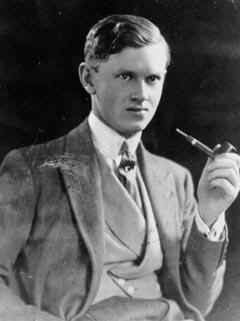 Emily Witt
Emily Witt discusses the phenomenon of young fogeyism in Great Britain.
Young fogeys wear tweed, smoke pipes, and revere the monarchy. They fight to repeal the Hunting Act, carry handmade umbrellas, and evince nostalgia for a past they have never actually experienced. Their political sensibilities, for the most part, track their aesthetics: Sharpe, a former chairman of the Cambridge University Conservative Association, describes his own politics as "paternalistic."
Fogeyism has no manifesto or ideology, Sharpe insists, and young fogeys don't announce themselves as such -- to do so would be counter to what Sharpe has called their "studied indifference." But, he admits, "one thing that is of great concern is the overdemocratization of things at the moment -- that whatever is popularly thought good is what's good." The young fogey, says Sharpe, has faith in authority: Bach is superior to Lady Gaga [Um, duh? Was this ever in doubt? Even for a second?]; Alberti is preferable to Frank Gehry; and police chiefs should be appointed, not elected. As the ruling Conservatives present their agenda of government decentralization and sweeping budget cuts on relatively tenuous political ground, this refusal by some young conservatives to adhere to the party's reformed image is inconvenient at best.
The rest
here.
 Emily Witt discusses the phenomenon of young fogeyism in Great Britain.
Emily Witt discusses the phenomenon of young fogeyism in Great Britain.
<< Home